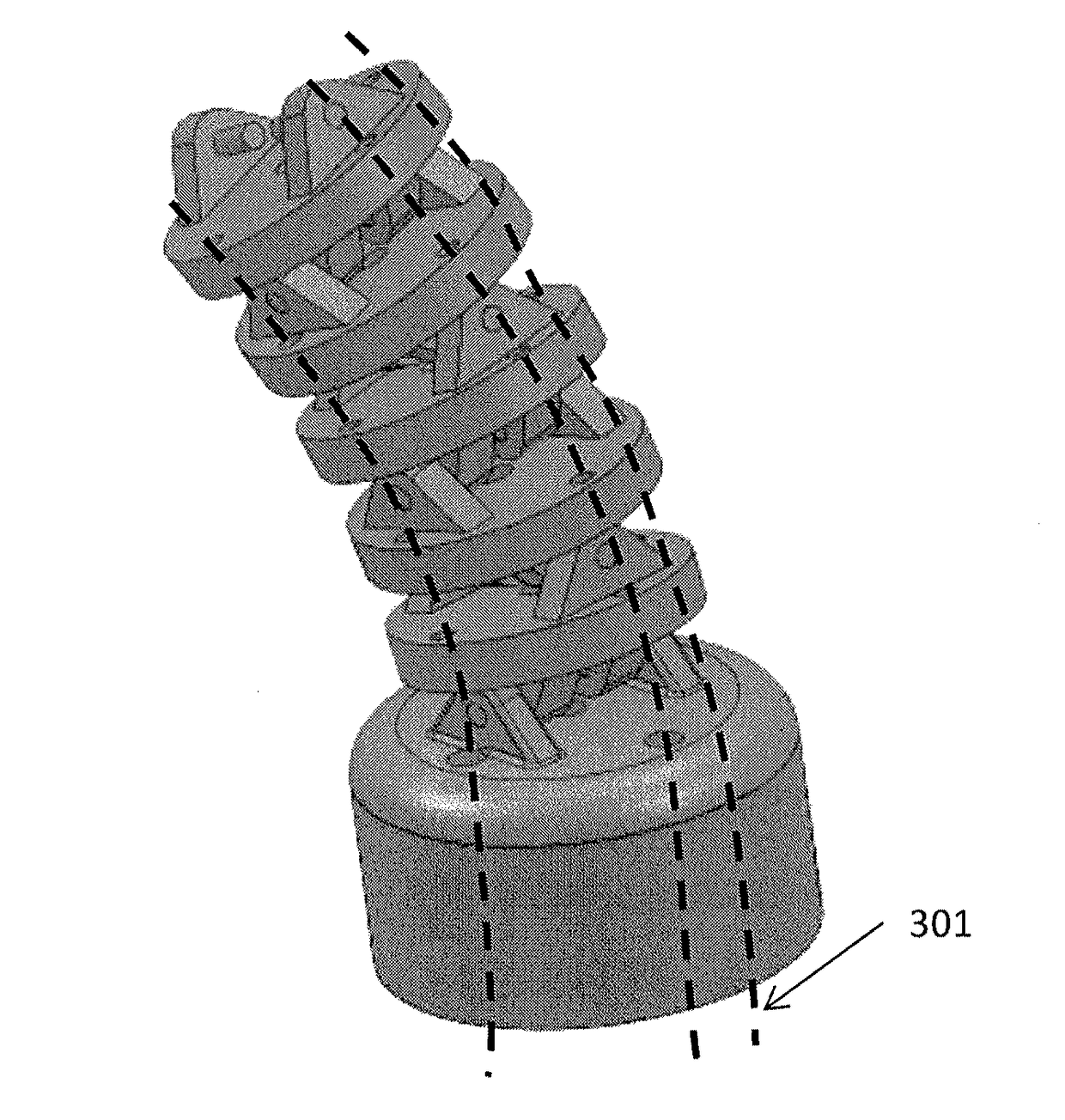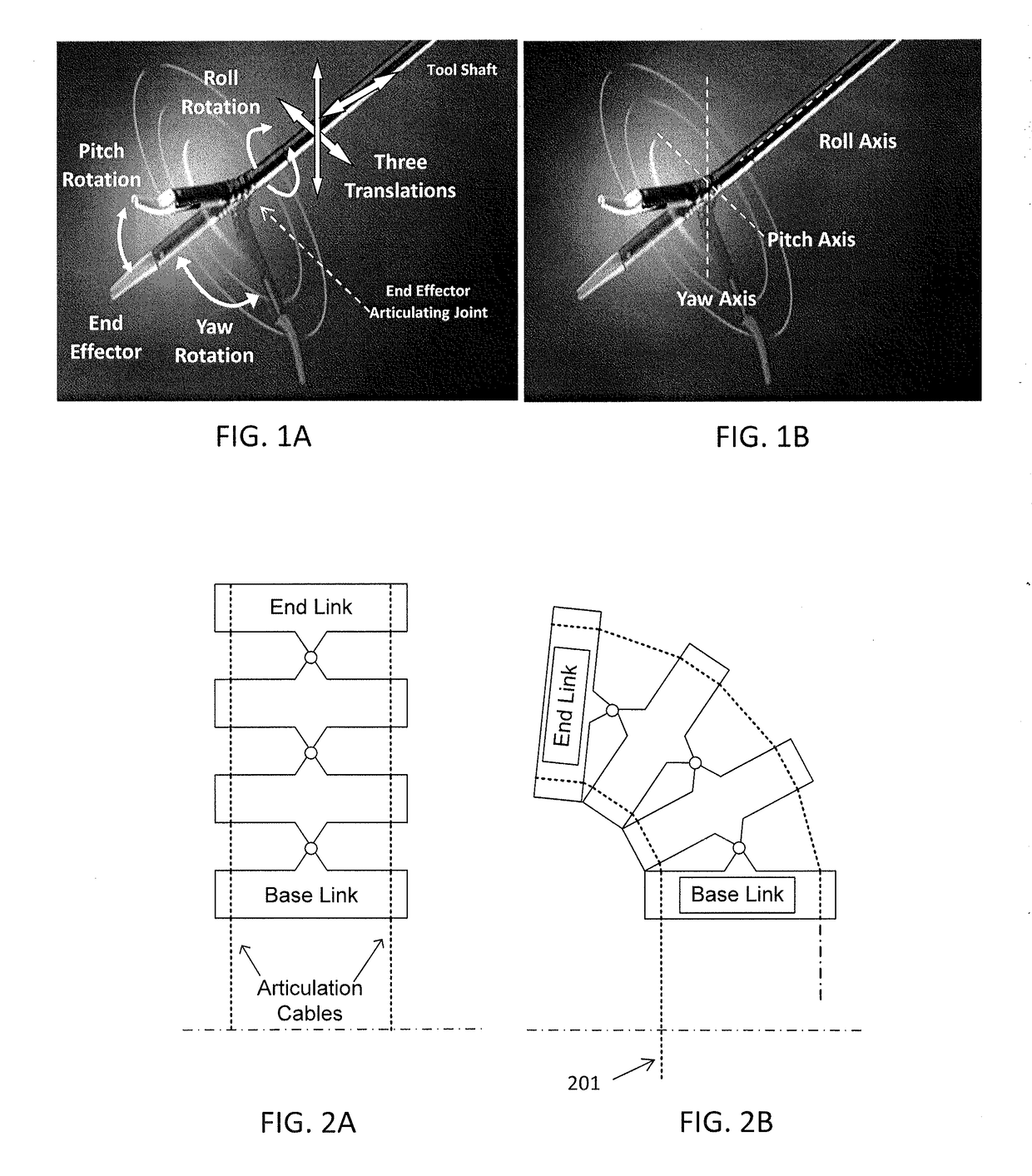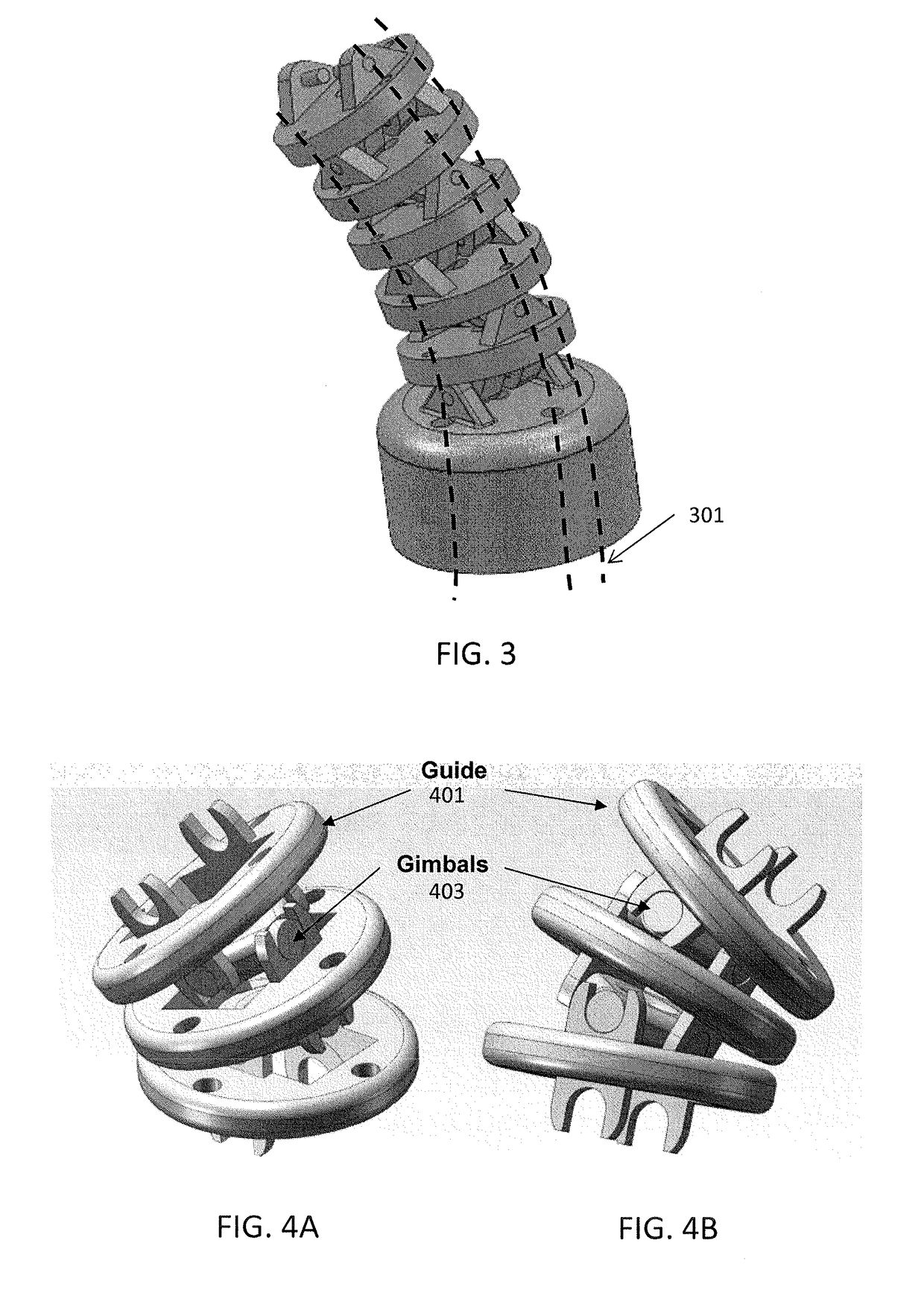Medical devices having smoothly articulating multi-cluster joints
a multi-cluster joint, smooth technology, applied in the field of multi-cluster articulation joints, can solve the problems of unfavorable miniaturization, unnecessary slack generation and/or backlash in the end-effector articulation, performance trade-offs, etc., to achieve high degree of articulation angle, avoid distortion, and tight bend radius
- Summary
- Abstract
- Description
- Claims
- Application Information
AI Technical Summary
Benefits of technology
Problems solved by technology
Method used
Image
Examples
Embodiment Construction
[0135]A variety of articulating remote access tools have been described in the prior art. The articulating joints of these tools generally include one or a series of links or segments which can be controlled by one or more tension members. These particular combinations of links, segments, components and tension members can be useful for the purpose of steering an end-effector for remote access and manipulation of an instrument, specifically a laparoscopic or endoscopic surgical instrument. Since these devices utilize articulating end-effector joints that are generally tension member (e.g. articulation cables) controlled, they lend themselves to manipulation via input at a proximal region with respect to the end-effector and, for example, by way of handle manipulation with tension member transmission through an analogous joint mechanism. Generally, handle manipulation of an instrument, which can be considered manual or electromechanical (robotic), offers some degree of mapping to the...
PUM
 Login to View More
Login to View More Abstract
Description
Claims
Application Information
 Login to View More
Login to View More - R&D
- Intellectual Property
- Life Sciences
- Materials
- Tech Scout
- Unparalleled Data Quality
- Higher Quality Content
- 60% Fewer Hallucinations
Browse by: Latest US Patents, China's latest patents, Technical Efficacy Thesaurus, Application Domain, Technology Topic, Popular Technical Reports.
© 2025 PatSnap. All rights reserved.Legal|Privacy policy|Modern Slavery Act Transparency Statement|Sitemap|About US| Contact US: help@patsnap.com



